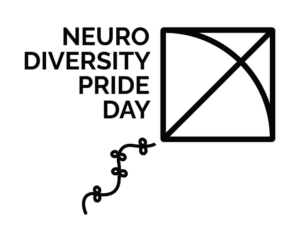Navigating social situations can be a daunting task for anyone, but for individuals with ADHD and autism, it often presents unique challenges. While some may perceive individuals with these conditions as shy or aloof, many are actually overcompensating in social settings, striving to fit in and mask their differences. In this article, we’ll explore the reasons behind this phenomenon and shed light on the hidden struggles faced by ADHDers and autistics in social interactions.
- The Pressure to Conform: Society places a heavy emphasis on social norms and expectations, leading individuals with ADHD and autism to feel pressure to conform and “act normal” in social settings. This pressure to fit in can be overwhelming, prompting them to overcompensate by mimicking neurotypical behavior and suppressing their natural tendencies.
- Fear of Rejection: Fear of rejection is a common experience for many individuals with ADHD and autism. They may worry that their differences will be misunderstood or judged negatively by others, leading them to overcompensate in an effort to avoid rejection and social exclusion. This fear can drive them to mask their true selves and adopt behaviors that they believe will be more socially acceptable.
- Misunderstood Social Cues: Both ADHD and autism are associated with difficulties in understanding and interpreting social cues. Individuals with these conditions may struggle to pick up on subtle social cues such as body language, tone of voice, or facial expressions, making it challenging for them to navigate social interactions effectively. In an attempt to compensate for this deficit, they may overcompensate by overanalyzing social situations or engaging in excessive social niceties.
- Coping Mechanisms: Overcompensating in social settings can also serve as a coping mechanism for individuals with ADHD and autism. By masking their differences and blending in with their peers, they may feel a sense of relief from social anxiety or discomfort. However, this constant effort to mask their true selves can be exhausting and ultimately detrimental to their mental health and well-being.
- Desire for Connection: Despite the challenges they face, individuals with ADHD and autism often crave social connection and meaningful relationships. They may overcompensate in social settings as a way to bridge the gap between themselves and others, hoping to forge genuine connections and establish a sense of belonging. However, this desire for connection can sometimes be overshadowed by the need to conform to societal expectations.
In conclusion, overcompensating in social settings is a common phenomenon for individuals with ADHD and autism, driven by a variety of factors including the pressure to conform, fear of rejection, difficulties in understanding social cues, coping mechanisms, and a deep-seated desire for connection. By recognizing and understanding the hidden struggles faced by ADHDers and autistics in social interactions, we can foster greater empathy, acceptance, and inclusivity in our communities. It’s essential to create spaces where individuals of all neurodiversities feel valued, accepted, and free to be their authentic selves.







